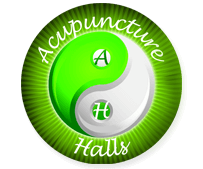
Photo credit to freepik.com
In today’s fast-paced world, sleep disorders have become increasingly prevalent, affecting millions of people worldwide. Insomnia, characterized by difficulty falling asleep or staying asleep, can have profound effects on physical, mental, and emotional well-being. While conventional treatments such as medication and cognitive-behavioral therapy can be effective, many individuals seek alternative approaches that address the root causes of their sleep disturbances. Acupuncture, an ancient healing modality rooted in traditional Chinese medicine, has emerged as a promising option for treating insomnia and other sleep disorders.
Understanding Insomnia and Sleep Disorders
Insomnia is a complex condition influenced by a variety of factors, including stress, anxiety, depression, chronic pain, hormonal imbalances, and lifestyle habits. Sleep disorders encompass a range of conditions beyond insomnia, such as sleep apnea, restless legs syndrome, and circadian rhythm disorders. While the underlying causes may vary, they often manifest as disruptions in the body’s natural sleep-wake cycle and imbalances in the flow of energy, or qi, according to traditional Chinese medicine.
Acupuncture: A Holistic Approach to Sleep Health
Acupuncture is a key component of traditional Chinese medicine that involves the insertion of thin needles into specific points on the body to stimulate the flow of energy and restore balance to the body’s energy pathways, known as meridians. From a TCM perspective, insomnia and sleep disorders are often attributed to imbalances in the heart, liver, spleen, and kidney meridians, as well as disruptions in the flow of energy between them.
Key Principles of Acupuncture for Sleep Health
1. Holistic Assessment
Acupuncture practitioners conduct a thorough assessment of the individual’s overall health, lifestyle, and sleep patterns to identify underlying imbalances and tailor treatment accordingly.
2. Stimulation of Acupuncture Points
Acupuncture points related to sleep health are targeted to regulate the nervous system, promote relaxation, and alleviate symptoms such as anxiety, stress, and pain.
3. Regulation of Yin and Yang
Acupuncture seeks to restore the balance between yin (the passive, nurturing aspect) and yang (the active, dynamic aspect) energies within the body, which is essential for maintaining healthy sleep-wake cycles.
4. Promotion of Blood Circulation and Energy Flow
By enhancing blood circulation and energy flow, acupuncture helps release tension, reduce inflammation, and facilitate the body’s natural healing processes, promoting better sleep quality.
5. Lifestyle Recommendations
In addition to acupuncture treatments, practitioners may offer lifestyle recommendations such as dietary modifications, stress management techniques, and sleep hygiene practices to support long-term sleep health.
Research and Evidence
While research on acupuncture for insomnia and sleep disorders is ongoing, several studies have demonstrated its effectiveness in improving sleep quality, reducing sleep latency, and alleviating related symptoms. A meta-analysis published in the Journal of Alternative and Complementary Medicine found that acupuncture significantly improved sleep efficiency and total sleep time compared to sham acupuncture or no treatment. Additionally, acupuncture has been shown to modulate neurotransmitters involved in sleep regulation, such as serotonin and gamma-aminobutyric acid (GABA), providing a physiological basis for its therapeutic effects.
Real-Life Success Stories
Many individuals have reported significant improvements in their sleep patterns and overall well-being following acupuncture treatment. From busy professionals struggling with stress-induced insomnia to individuals with chronic pain or hormonal imbalances disrupting their sleep, acupuncture has provided relief and restored balance to their lives. By addressing the underlying imbalances contributing to their sleep disturbances, acupuncture offers a holistic approach to sleep health that goes beyond symptom management.
Conclusion
Acupuncture offers a holistic approach to treating insomnia and sleep disorders by addressing the underlying imbalances in the body’s energy system. By stimulating specific acupuncture points, regulating the flow of qi, and promoting relaxation, acupuncture can help individuals achieve better sleep quality, reduce sleep latency, and improve overall well-being. As research continues to uncover the mechanisms underlying its therapeutic effects, acupuncture holds promise as a safe and effective treatment option for those seeking natural solutions to their sleep challenges.
Visit the Acupuncture Halls clinic in San Juan Capistrano, CA if you would like to try acupuncture treatment for insomnia or any other sleep disorders. Dr. Martha E. Hall, DAOM, ACN, our licensed acupuncturist, will help you with your health concerns. Here is where you may make an appointment as well: Contact Form for Appointment, or you may call at 949-510-6333.
